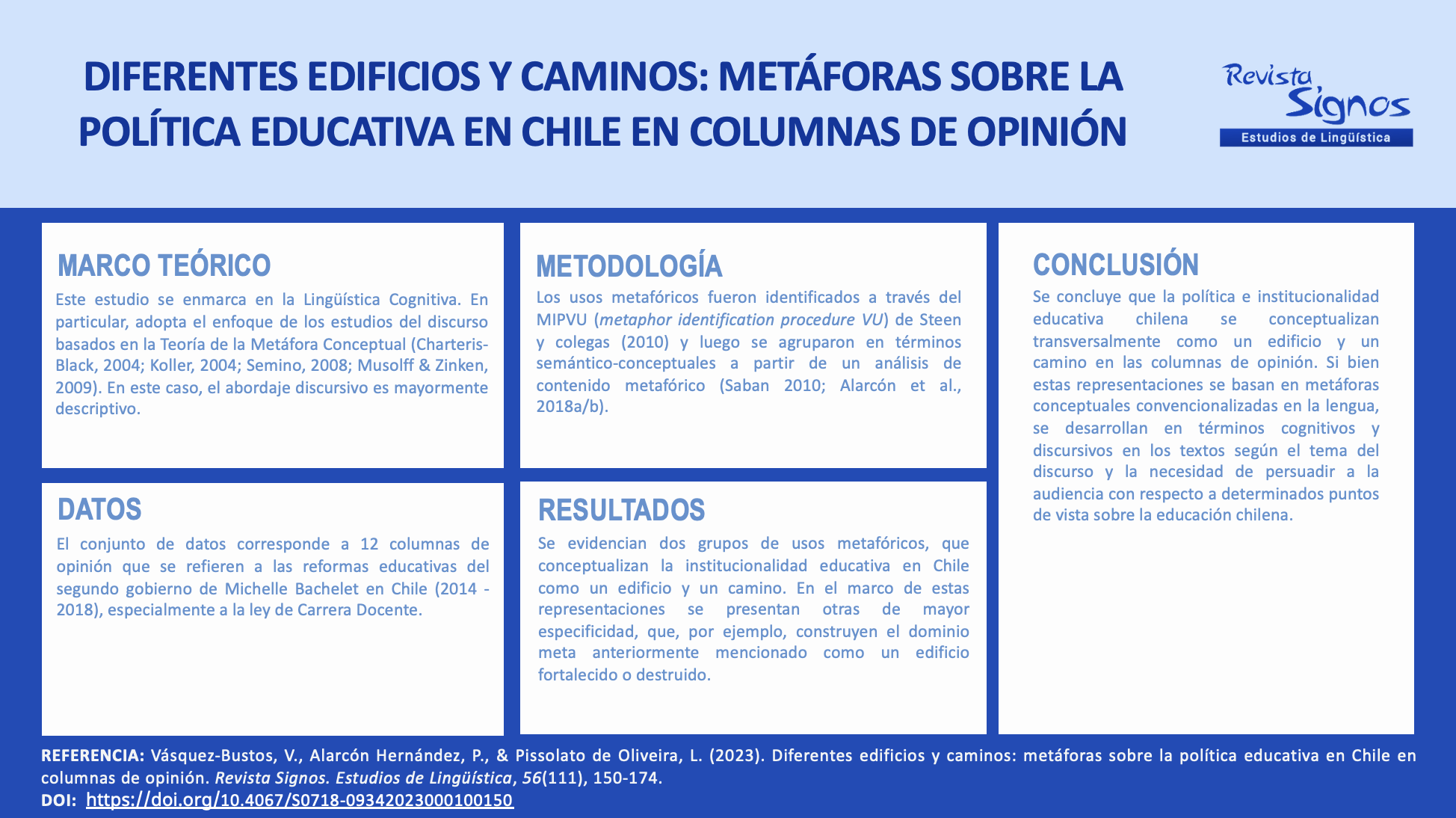Different Buildings and Roads: Metaphors about the Chilean Education Policies in Opinion Pieces
Keywords:
Linguistic metaphor, conceptual metaphor, Cognitive Linguistics, opinion piece, education policiesAbstract
This qualitative research aims to analyze linguistic and conceptual metaphors about Chilean educational policy, as read in op-ed pieces from different online newspapers in the country. Both a procedure for identifying metaphorical uses and an analysis of metaphorical content were applied. By doing so, there was evidence on the repeated appearance of two groups of linguistic metaphors about Chilean educational policy: one which conceptualizes it as a building and the other as a road. These sets of linguistic metaphors can acquire specific conceptual and discursive features in the same opinion piece. Thus, the conclusion is that, while each group of linguistic metaphors is based on common and conventionalized conceptual metaphors, their development in the columns is specially oriented by the common topic of discourse and particular persuasive purposes. Most notably, criticism against different political-educational actors and processes, such as the Chilean educational system, the governments, or grassroots movements.

Downloads
Published
How to Cite
Issue
Section
License
Copyright (c) 2023 Revista Signos. Estudios de Lingüística

This work is licensed under a Creative Commons Attribution 4.0 International License.
Copyright agreement:
Authors who have a manuscript accepted for publication in this journal agree to the following terms:
Authors will retain their copyright and grant the journal the right of first publication of their work by means of this copyright agreement document, which is subject to the Creative Commons Acknowledgment License that allows third parties to share the work provided that its author and first publication in this journal are indicated.
Authors may adopt other non-exclusive license agreements for distribution of the published version of the work (e.g., depositing it in an institutional repository or publishing it in a monographic volume) as long as the initial publication in this journal is indicated.
Authors are allowed and encouraged to disseminate their work via the internet (e.g., in institutional publications or on their website) before and during the submission process, which can lead to interesting exchanges and increase citations of the published work (read more here).


